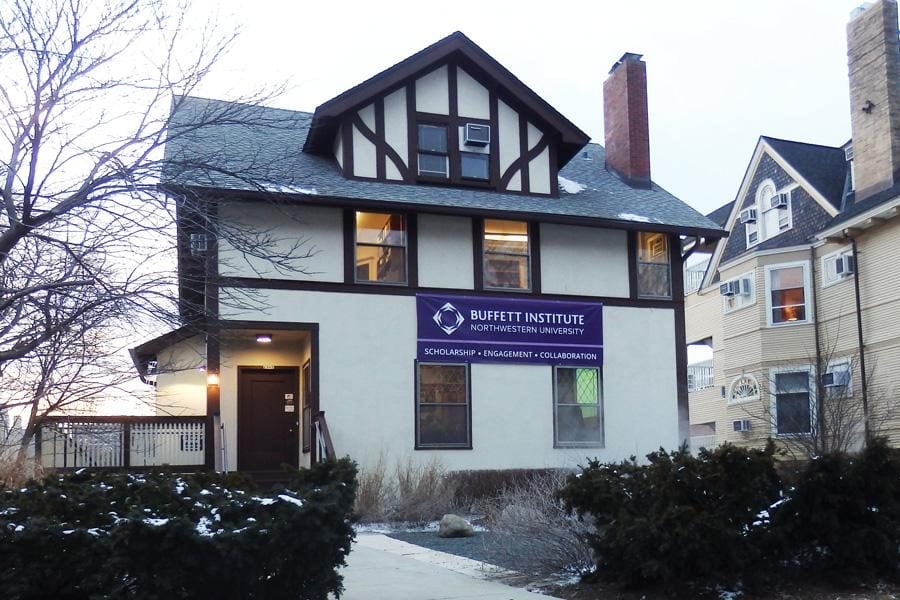Northwestern researcher Adia Benton talks domestic and global COVID-19 response, “flattening the curve”
Daily file photo by Lauren Duquette
The Buffett Institute for Global Affairs, 1902 Sheridan Road. Roberta Buffett Elliott is one of three winner’s of this year’s NU Alumni Medal.
March 20, 2020
COVID-19 News
Northwestern researcher and anthropology Prof. Adia Benton discussed responses to the COVID-19 outbreak in the U.S. and globally in a Tuesday webinar.
The event, hosted by the NU Buffett Institute for Global Affairs, touched on anthropological perspectives on the novel coronavirus pandemic. Annelise Riles, executive director of the Buffett Institute, said their mission is to bring perspectives from a cross-disciplinary standpoint to address the “greatest global challenges.” At the moment, she said, the COVID-19 outbreak is a collectively “outstanding” global challenge.
“The crisis does make us aware of our common humanity and our global interconnectedness,” Riles said. “Although we’re all immersed in the crisis management associated with caring for our families, colleagues, institutions and communities, we know that there is a need for a more expansive thinking about what we’re facing.”
Benton said household structures will be impacted just as much as precautions people have been taking outside their homes. “Social distancing,” she said, can only go so far when members of a household have to commute to work or drop their kids off for a period of time each day.
As an anthropologist, Benton said observing this change in household dynamics is an important factor to consider as the outbreak continues to impact everyday life. Many of the people she interacts with every day, she said, are laborers who won’t have the benefits or resources to carry on and pay their bills if they stay home indefinitely.
Benton also explained the widely used term “flattening the curve.” Rather than facing a huge growth of the disease, she said, limiting our movements by social distancing will limit the spread of the disease.
“Flattening the curve means trying to manage the number of people who end up at hospitals, so we don’t max out our capacity to care for those who are seriously ill,” Benton said.
When asked whether the Illinois primaries should have been cancelled, Benton said civic duty is the “risk she’s willing to take.” With Chicago’s use of paper ballots, mail ballots and early voting, she said the Democratic process is something that everybody should be invested in.
Benton added that a longer timeline for mail-in ballots would be a good idea in solving the problem of in-person voting concerns due to the spread of COVID-19. On Tuesday, Gov. J.B. Pritzker publicly defended his decision to not postpone the Illinois primaries. As of Wednesday afternoon, at least five states have postponed their primaries.
“Elections are the cornerstone of our democracy and we could not risk confusion and disenfranchisement in the courts. No one is saying this is a perfect solution. We have no perfect solutions at the moment. We only have least bad solutions,” Pritzker said in a Tuesday statement.
Email: isabellesarraf2022@u.northwestern.edu
Twitter: @isabellesarraf
Related Stories:
– Coronavirus updates: The Daily’s ongoing coverage



